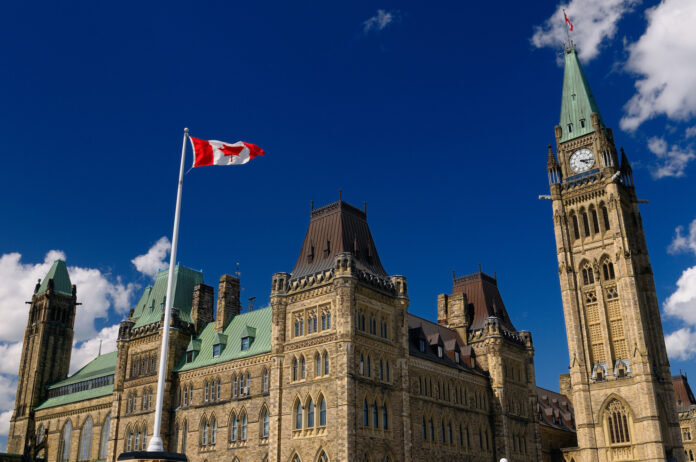
Canada’s Bill C-13 is heading to the Senate after clearing the House of Commons as it moves close to enshrining its policy of promoting francophone immigration into law.
Under that proposed bit of legislation, Canada’s immigration minister would be obligated under the law to do something which is already being done in practice under the current government: protect the vitality of French-language minority communities throughout the country.
Bill C-13 will require Immigration, Refugees and Citizenship Canada (IRCC) to adopt a policy on francophone immigration to enhance the vitality of French linguistic minority communities in Canada, including by restoring and increasing their demographic weight.
That policy is to include:
- objectives, targets and indicators;
- mechanisms for information sharing and for reporting;
- a statement that the government of Canada recognizes that immigration is one of the factors that contributes to maintaining or increasing the demographic weight of French linguistic minority communities in Canada, and;
- a statement that the government of Canada recognizes the importance of francophone immigration to economic development.
Read More Canada Immigration News
Canada Francophone Immigration Five Times Higher Than 16 Years Ago
Quebec Makes Part Of Entrepreneur And Self-Employed Immigration Programs Francophone-Only
All Immigrants To Quebec To Be Francophone By 2026, Says Provincial Premier
Prime Minister Justin Trudeau’s government, a minority government ruled by the Liberal Party of Canada, already does much of that in practice. By amending the Official Languages Act, Bill C-13 will make those policies of the current government a legal requirement.
In late January, Immigration Minister Sean Fraser announced Canada had reached its 2022 target of 4.4. per cent French-speaking immigration outside of the francophone province of Quebec.
“Francophone immigration is at the heart of the values that make Canada rich, both culturally and through the distinct character of its two official languages,” said Fraser.
“We will continue to welcome French-speaking immigrants to ensure the viability of these key communities that are helping to shape the future of our country.”
In the past year, more than 16,300 new immigrants have settled in francophone minority communities across Canada. The country now boasts the biggest number of French-speaking immigrants outside Quebec since that data began to be recorded.
“Francophone immigration plays a key role in restoring the demographic weight of francophone minority communities, in addition to contributing closely to the economic development of our country,” said Official Languages Minister Ginette Petitpas Taylor.
Canada Hit Its 4.4% Francophone Immigration Target Last Year
As Ottawa announced it had hit its 2022 francophone immigration target in January, Petitpas-Taylor looked ahead to the creation of a “robust new francophone immigration policy, presented in Bill C-13, with objectives, targets and specific indicators that will ensure the sustainability of the French language.”
Since then, Ottawa has unveiled its new Action Plan for Official Languages 2023–2028: Protection-Promotion-Collaboration and announced it plans to invest $137.2 million over the coming five years to boost immigration to Canada by French-speaking foreign nationals from Africa, Europe, the Middle East and the Americas.
In that five-year francophone immigration plan, the Canadian government claims the percentage of francophones in Canada is dropping despite increases in the overall number of francophones in the country.
“In general, Statistics Canada data show the number of Canadians whose first official language spoken is French has increased since 2016, reaching 7.8 million in 2021 (an increase of 1.6 per cent). However, that growth has been outpaced by the growth in the Canadian population as a whole (5.2 per cent), signalling a decline in the overall demographic weight of francophones in Canada,” notes the plan.
Watch
“This gap is of particular consequence to francophone minority communities, who are more reliant on immigration to offset their demographic decline.”
The cost of the new policy and operational framework for francophone immigration to Canada is pegged in that plan at $13.4 million over five years.
This will entail revisiting its francophone immigration strategy, which was launched in 2019, with an eye towards boosting francophone immigration and providing more settlement and integration services for French-speaking and bilingual immigrants.
Another $18.5 million is to be invested over the coming five years to recruit more francophone immigrants from Africa, Europe, the Middle East and the Americas to support the efforts of employers in official language minority communities.
The Canadian government is also pledging $16.3 million over that period to recruit more internationally-trained French-speaking and French teachers for elementary, middle and secondary schools to address a perceived shortage of such teachers in francophone minority communities.
Canada Will Invest $25m In Centre For Innovation In Francophone Immigration
Under an initiative to further consolidate the francophone integration pathway and improve settlement and integration services to these newcomers, Canada is planning to spend another $50 million over the coming five years.
“This will be achieved through existing initiatives, such as Welcoming Francophone Communities, and new measures, such as a strategy to better support French-speaking women immigrants,” notes the plan.
The cost of establishing a new Centre for Innovation in Francophone Immigration is being pegged at $25 million over the next five years.
It is to provide francophone communities an opportunity to participate in activities to promote their communities and identify, support and recruit French-speaking and bilingual candidates. The centre will also seek to address the labour needs of Canada’s various economic sectors.
Newcomers who want to learn English or French will benefit from an additional $10.5 million in language training over the coming five years.
And Ottawa has earmarked $3.5 million over the coming five years to develop new capacity to analyze its own efforts to boost the selection of francophone and bilingual immigrants under existing programs in order to make those programs more effective and increase the levels of francophone immigration.
Francophone immigration to Canada, excluding Quebec, was almost five times higher last year than during the 2006 census year due to Ottawa’s on-going efforts to ensure the vibrancy of French-language communities across the country.

